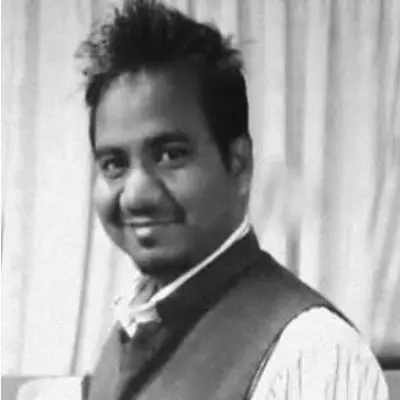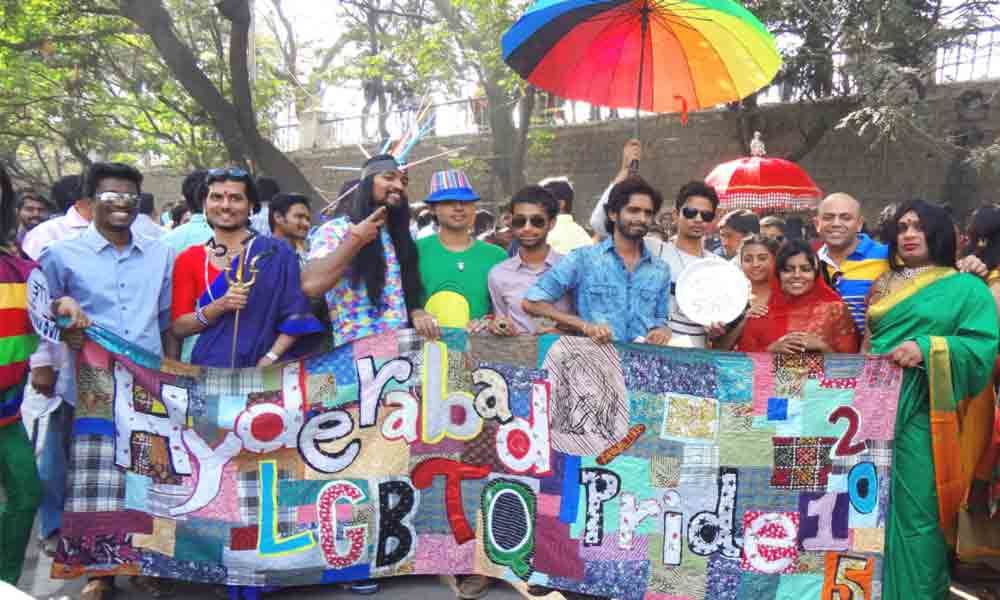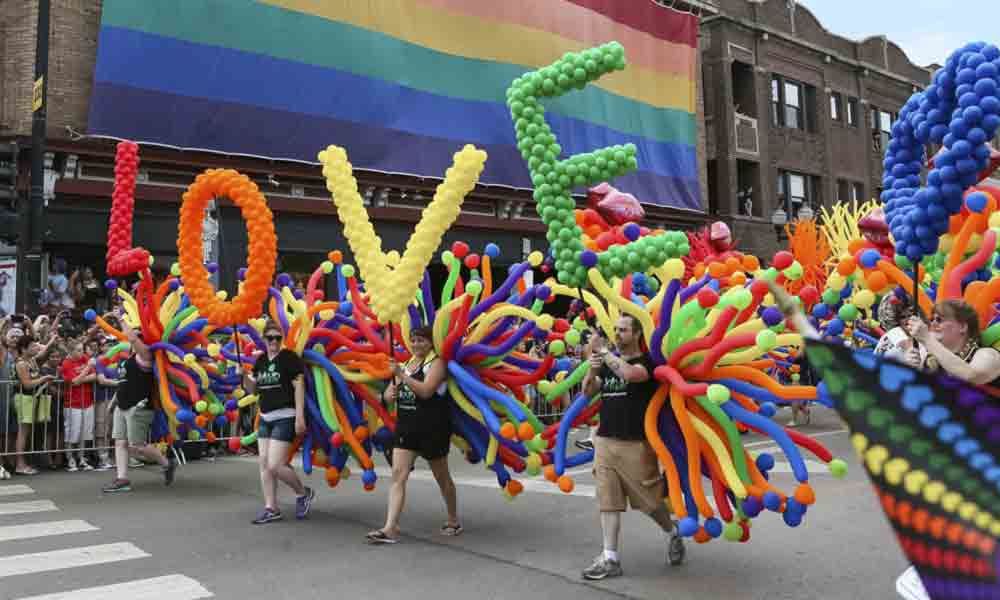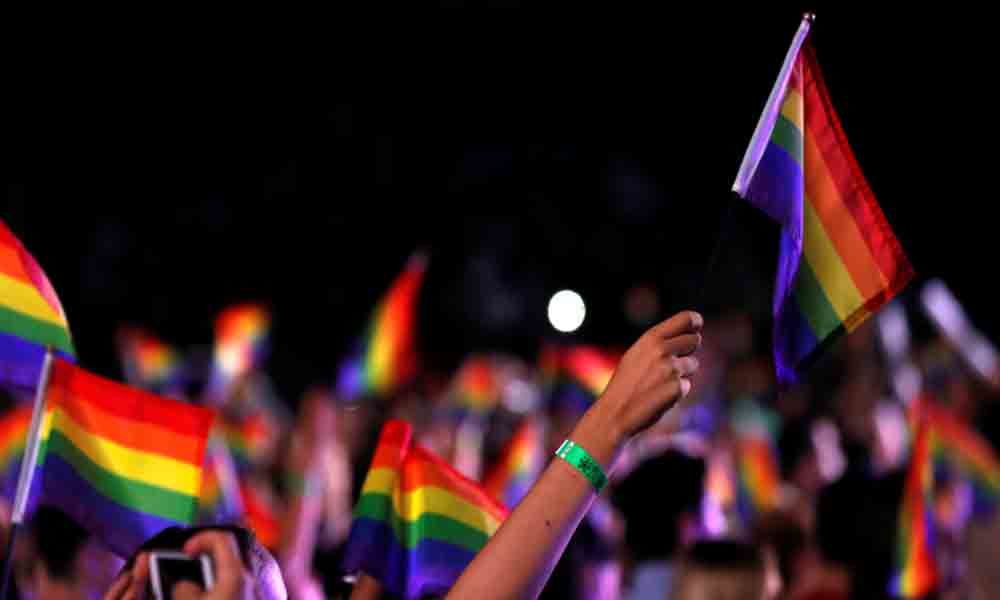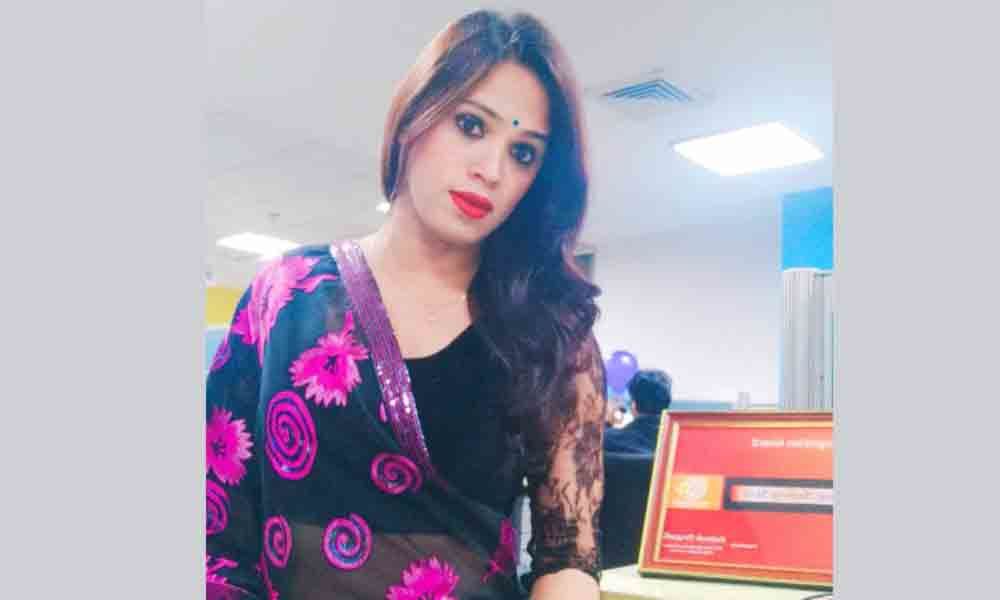Live
- Hyderabad's Air Quality Worsens as Winter Settles In | AQI Levels Reach Moderate Range
- Dead' Man Wakes Up En Route To Cremation In Rajasthan; Three Doctors Suspended
- Odisha to study root causes for migration of labourers
- Forest officials accountable for wildlife deaths: Minister
- WhatsApp Update: WhatsApp Introduces Voice Note Transcription
- We now know sacrifice of many national heroes: CM
- Miscreants attack Dharmasala MLA Himanshu
- Salman Khan’s ‘Biwi No 1’ to Re-Release on November 29
- 7 kg ovarian tumour removed
- Worker dies under a heap of cotton
Just In
Not so long ago, Supreme Court passed a historic judgement decriminalising same-sex relationships in India. The move had such a widespread impact that it inspired the African nation of Botswana to do the same in their country while citing us as an example. To an outsider. it would appear that India is the third-world's leader on the issue. However, a close look into the matter tells you a different story.
Pride parades, openly homosexual athletes and a whole lot of support from the liberals (aka allies) on social media might fool you into believing that the LGBTQIA+ community in India is doing really well. It is doing well when you compare it to what they had to deal with before - which was as bad as being called a criminal (by the law) for their sexual preferences. And honestly, that is setting the bar really low. The Supreme Court ruling has given India's rainbow community legality, however, one thing it still longs for is the 10-letter word – acceptance.
A quick google search would tell you that the word acceptance means 'the act of accepting something or someone.'
The Hans India spoke to a few 'someones' in Hyderabad and they say their order of 'acceptance', despite being shipped a long time back, is still in transit. "Despite the government legalising it, discrimination still exists. In the minds of people, the problem is still there. No one actually accepts it. They make fun of me if I say I am bisexual," says 19-year-old Aakanksha Iyengar, a graduate student and a snake rescuer.
She also believes that the law hasn't changed the way people treat her. "People still criticise and make fun of me. I've heard so many older people tell me that this is a phase and it is all about my curiosity. They say things like 'you will like only guys eventually.' It's so bad that I am yet to tell my mother about it because she dreams of getting me married to a boy," a dejected Aakanksha says adding, "In society's view section 377 still exists."
In a patriarchal society like ours where the root of everything is a made-up toxic version of 'masculinity', coming out of the closet as a homosexual man can really cost you a lot. In Sakti Madhav's case, it cost him his job.
"People from the gay community are the ones, who face a lot of discrimination. Transgenders are easily identifiable as they dress in a certain way. A lesbian girl is really, really hard to identify in the lot. But if a gay man comes out of closet, people around him stop talking to him. They hurl abuse and throw insults at him. It got so bad in my case that I was terminated from my previous company when they came to know that I am gay," a distraught Sakti says.
25-year-old Karthik (name changed), a theatre actor, who wants to work in Telugu Film Industry says, "Although I am an open-minded person, I have not come out of the closet completely. Only very close people know that I am bisexual, and they warn me not to come out because it could jeopardise my Tollywood aspirations and I may not get a chance to act in mainstream films. Telugu film industry is not yet ready to accept people from the LGBT community. Although I want to come out publicly my well-wishers warn me against it as it will, not even may, damage my career. However, I believe in my talent and my sexual orientation does not affect it. I will soon go public about my orientation and if they reject me it is their loss. I have faith in my passion and talent, and I will keep trying."
A popular explanation as to why this happens is that 'India is still developing' and that 'we will get there eventually'. However, that isn't necessarily the case. There are a lot of things that 'did not get there eventually'. If history books are to be trusted, India had made peace with a social evil like 'Sati' for centuries without anyone batting an eyelid. And if it wasn't for the British, who knows, we would still be fighting it. The strategy to leave society to accept the LBGT community might take centuries. But does that mean we need the British to colonise us again to change this? Shane Mills, a transwoman, believes there are easier ways.
"The law was called off, but we need to sensitise our society, country and education system. Everything has to come under one umbrella. People need to know the exact reason why LGBT is existing. The primary target, I would say is the foundation that comes from education. I strongly feel that LGBT should be included in the education system so that you know what it means during childhood itself. So, when you grow up, you are sensitive to people who come from the LGBT community," Shane explains.
Shane also pinpointed the exact place where our education system needs rectifying. "Our education system only talks about male or female. We do not have a concept of orientation about what is gender identity. These things are not taught to students and unfortunately, that's why people are not aware, and people assume things. That's why people are homophobic, transphobic, etc, because they do not know what it is. Again, as people don't talk about this at homes or is it there in education system; hence, we need to start bringing that culture now. That's the change we should look forward to," a determined Shane adds.
On how to educate the current crop on the issue, Shane believes it's all about sensitising people. "Pride Chapters are very important as we can tackle even minor issues. I lead the Pride Chapter in my company for Hyderabad, so I take part in all the Pride events for my company," says Shane. In fact, Shane's office, unlike Sakti's, is doing really well in accepting the change and moving forward. "There a few companies in Hyderabad, who have started transition policies and so we take learning examples from those companies. In our company, we have All-Gender washrooms, which is a good step forward for us."
Agreeing with Shane, Patruni Chidananda Sastry, founder of Hyderabad Drag Club, says that we should talk about genders in school. "In the West, everybody is an individual barring gender or orientation. Individuality is something, which has to be taught, and I think if we bring that kind of individuality in India, the Hijra community people would be known as intersexual, eunuchs and Trans and not just one umbrella term - 'hijras'. For example, if a person is openly gay, he is called a 'hijra' in movies. There should be a change there. Instead of just poking fun at them and having cisgender actors play those roles, we should hire transgender artistes for transgender roles. There should be a representation of LGBTQIA+ community in the industry," Patruni added.

© 2024 Hyderabad Media House Limited/The Hans India. All rights reserved. Powered by hocalwire.com


